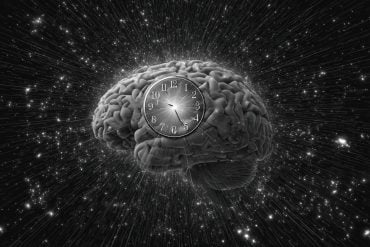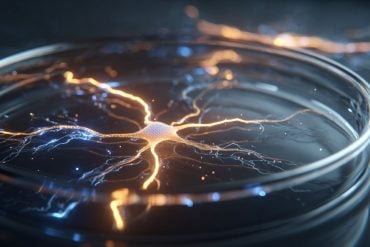Summary: New research shows that women with healthy blood iron levels during menopause perform better on cognitive tasks like memory and attention. The study found that sufficient blood iron was linked to better brain function without increasing harmful iron deposits in the brain.
Low iron levels were associated with slower cognitive performance, suggesting a potential cause of brain fog during menopause. Researchers highlight that minor dietary changes to boost iron could ease cognitive symptoms during this transition phase.
Key Facts:
- Cognitive Boost: Adequate blood iron improves memory, attention, and cognitive speed during menopause.
- No Brain Iron Risk: Higher blood iron did not correlate with dangerous brain iron accumulation.
- Simple Solutions: Small dietary changes could ease brain fog and other cognitive symptoms in menopausal women.
Source: University of Oklahoma
New research from the University of Oklahoma sheds light on an understudied area of science: iron levels in the blood and their relationship to cognitive performance in women transitioning into menopause.
The findings are good news for women experiencing brain fog and other symptoms.
Published in the journal Nutrients, the study suggests that when women have adequate levels of iron in their blood during the menopausal transition, they perform better on cognitive tasks.
Moreover, sufficient iron in the blood did not equate to unsafe levels of iron in the brain, which has been shown to elevate the risk for neurodegenerative diseases like Alzheimer’s.
“When a woman makes the menopausal transition, she’s no longer losing blood on a monthly basis, which means she’s no longer losing iron,” said Michael Wenger, Ph.D., a professor of psychology at the OU College of Arts and Sciences and a lead author of the study.
“We wanted to see if the cost of being low on iron disappears during the menopausal transition. Very few studies have been done in this area.”
The research team measured iron levels in the blood, conducted MRIs to see the amount of iron in the brain, and assessed behavioral measures of cognition. None of the women in the study were deficient in iron; however, quite a few were below where they should be for their age.
The women who were below expected levels of iron in the blood performed worse on measures of memory, attention and cognition.
“Our previous research has shown that being iron-deficient extracts some serious costs in terms of cognitive performance,” Wenger said.
“If I were to give a woman with iron deficiency a simple task in which she presses a button every time an asterisk appears on a screen, the deficiency would cost her about 150 milliseconds.
“That doesn’t sound like a lot, but we make simple decisions like that when we choose every word we say in a sentence. Those 150 milliseconds add up.”
Importantly, the amount of iron in the blood did not predict how much iron was deposited in a woman’s brain, Wenger said.
“We have known for some time that the accumulation of iron in the brain is a risk factor for developing conditions like Alzheimer’s and vascular dementia,” he said.
“This data was surprising, and good news because it appears that having iron levels that are at or above what you should expect for your age does not mean you’re accumulating more iron in your brain.”
Being deficient in iron is not the same thing as being anemic. Low iron is a risk factor for anemia, Wenger said, but people can become anemic for other reasons. However, women visiting their OB-GYN typically are not tested for iron deficiency, which may be a missed opportunity.
“Low iron could easily be one of the reasons that a woman is experiencing brain fog during the menopausal transition,” he said.
“It also may be why some women talk about their eyesight changing during menopause. Iron is a critical element in the synthesis of the neurotransmitter dopamine, and the eye is dependent upon dopamine for basic signaling at the first point of contact with light.”
Although taking iron supplements is usually not the best course of action since they cause major gastrointestinal side effects, a low dose could be effective, as would diet changes to consume more foods high in iron, Wenger said.
“Making these minor changes could make a woman’s transition from pre- to post-menopause easier to bear,” he said.
Because part of the study was conducted during the COVID-19 pandemic, enrollment wasn’t as high as the research team would have liked. They plan to seek funding to conduct a larger study.
“I feel like we’ve had a pretty good understanding of post-menopause health, such as watching for cardiovascular issues and osteoporosis, but we haven’t known as much about what to do during this in-between phase, and it’s actually way more bothersome to people,” said OB-GYN and study co-author Pamela Miles, M.D., an associate professor in the OU College of Medicine.
About this iron deficiency and brain fog research news
Author: April Wilkerson
Source: University of Oklahoma
Contact: April Wilkerson – University of Oklahoma
Image: The image is credited to Neuroscience News
Original Research: Open access.
“Cognitive Performance in Relation to Systemic and Brain Iron at Menopause” by Michael Wenger et al. Nutrients
Abstract
Cognitive Performance in Relation to Systemic and Brain Iron at Menopause
Background: The literature on the relationships among blood iron levels, cognitive performance, and brain iron levels specific to women at the menopausal transition is ambiguous at best.
The need to better understand these potential relationships in women for whom monthly blood loss (and thus iron loss) is ceasing is highlighted by iron’s accumulation in brain tissue over time, thought to be a factor in the development of neurodegenerative disease.
Methods: Non-anemic women who were either low in iron or had normal iron levels for their age and race/ethnicity provided blood samples, underwent MRI scans to estimate brain iron levels, and performed a set of cognitive tasks with concurrent EEG.
Results: Cognitive performance and brain dynamics were positively related to iron levels, including measures associated with oxygen transport. There were no relationships between any of the blood measures of iron and brain iron.
Conclusions: Higher iron status was associated with better cognitive performance in a sample of women who were neither iron deficient nor anemic, without there being any indication that higher levels of systemic iron were related to higher levels of brain iron.
Consequently, addressing low iron levels at the menopausal transition may be a candidate approach for alleviating the “brain fog” commonly experienced at menopause.







